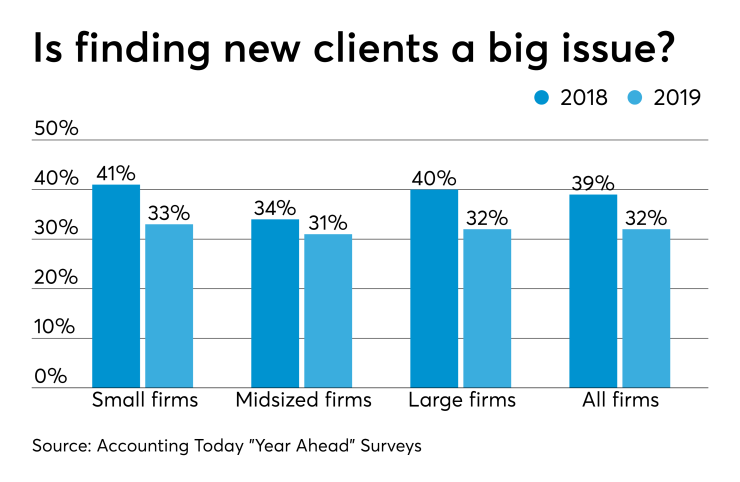After the Tax Cuts and Jobs Act, they’re likely to walk through the door in unprecedented numbers: prospects broadcasting that they’re going to be little more than trouble.
“I turn away clients that I feel are trying to scam the system,” said Melissa Bowman of Rainbow Accounting Services, Bradford, Ohio. “I just tell them we’re not a good fit.”
“I turn folks down who clearly have no desire to do things the right way,” said enrolled agent Debra James of Genesis Accounting & Mgmt. Services, in Lorain, Ohio. “They formulate ideas and business strategies that are attempts to manipulate a situation to suit their needs, and they insist on doing things that put my ethics in jeopardy and don’t allow me to do my job the way I feel is forthright and legal. I don’t tell them that I think they’re doing something fraudulent — I simply say that I don’t think we’re a good fit.”
“There are several different reasons why we turn away potential clients,” said Melanie Quint, an EA at Freeman Income Tax Service in Anthem, Arizona. “Sometimes it just comes down to pricing. There are those taxpayers that like to price shop and aren’t necessarily looking at the big picture or the additional services that a preparer can provide. Then there’s the occasional client who isn’t fully cooperative and isn’t forthcoming with the information necessary.”
“There are just times when personalities don’t align,” Quint said. “It’s nothing personal … Those clients are quite easy to turn away.”
Fee ride
“When a new client calls and the first question is concerning the fee, I usually end the call quickly,” said Jeffrey Gentner, an EA in Williamsville, New York. “These ‘shoppers’ rarely make good long-term clients. I’m also confident in the work I do and my own knowledge. If I get an inquiry from a client who has a need I know I’m [not] fully qualified to handle, I let them know upfront that they may need another preparer.” Gentner also said he has a good pool of local tax professionals “that I can make referrals to in these cases.”
“Tire kickers,” said Jeffrey Schneider, an EA in Stuart, Florida. “I don’t discount my fees, and if I sense a client is trying to get the lowest price, I tell them a rather high fee and then they go on their way.”
“If anyone wants me to take a position on a return that has no basis in fact or reality, I tell them that they cannot support my wife in the manner that I made her accustomed to or that I do not look good in an orange jumpsuit. It’s my way or the highway,” Schneider said.
“I really don’t like to fire clients,” said Burbank, California, CPA Brian Stoner. “I try to make them a good client by raising the fee I charge them for the time and effort I put into the tax planning and preparation. Then it’s up to the client whether they want to find someone else.”

Creative screening
New York EA Phyllis Jo Kubey has a package of materials for potential clients “explaining the difference between cost and value — and telling them if they’re looking for the cheapest option, I’m not a good fit for them,” she said.
CPA Lawrence Pon of Pon & Associates in Redwood City, California, only takes on new clients from May to October “so I can have a chance to review their prior tax returns and review their tax planning,” he said. “I want them in my system so tax season goes smoothly and I know what to expect.” Pon did make an exception once for the son of client — who stiffed him.
Pon always has a screening call with a client first. “If they’re bad-mouthing their tax pro, I know I’ll be the next one they bad-mouth,” he said. “I listen for code words: ‘aggressive accountant,’ ‘my taxes are too high’ and so on. Also, when they’re evasive and don’t tell me anything, that’s when I need to let them go.”
“The most common area I stay away from are under the 501 section of the code,” said Kerry Freeman, an EA at Freeman Income Tax Service in Anthem, Arizona. “Nonprofits and not-for-profits are unique and come with [their] own problems. The most common is with volunteer treasurers that move in and out of an organization. Often they have poor systems and don’t pass along information need to file.”
Some prospects — even existing clients — offer clear reasons why they should be directed to the nearest exit. “When I turn a client away or disengage them, it’s usually because they’re non-responsive to requests or there’s something about their story that just doesn’t make sense no matter how many angles that you examine it from,” said Morris Armstrong, an EA and registered investment advisor, Armstrong Financial Strategies, in Cheshire, Connecticut.
“The few times that this has occurred usually involved a suspicion of unreported income,” he said. “I just don’t need that headache.”





